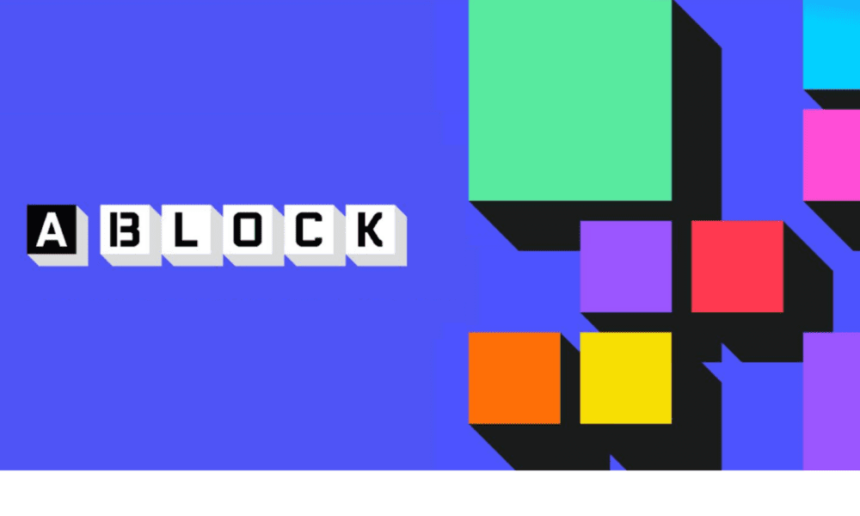Crypto, in many regards, has failed, but blockchain is just beginning.
In the world of crypto, where fortunes are made and lost with vaporware, it is easy to become despondent. Satoshi, the creator of Bitcoin, promised a world where the financial status quo would change for the better, but instead, the industry devolved into gambling, Ponzi schemes, or just outright fraud.
Blockchain, as a technology, has so much potential, and yet, beyond Bitcoin’s store of value, it has remained underutilized. Developers instead build projects that are far from the genuine concerns of everyday users – it’s even been joked that blockchain is a solution in search of a problem.
Yet, the reality is that the underlying technology has the potential to change not just how we save and invest our hard-earned money but also how we manage all our digital interactions. Blockchain is a way to create trustless interactions with perfect strangers – everything is on-chain, there for everyone to see.
That is what blockchain can solve – trust.
Trust is a rare commodity online. When given out of necessity, it’s abused. Companies steal user data and use their assets without their consent, all while users have little recourse.
This horrible state of affairs will only change when users take a stand and decide that enough is enough. The blockchain revolution is about more than just managing your finances, but managing your whole digital footprint and how it relates to others.
There have been some attempts at expanding blockchain functionality. For example, Filecoin is a blockchain-based cooperative digital storage and data retrieval method. However, storage is just a fraction of the whole picture; you also need to be able to meaningfully use and control the data in these files and your identity online. The ability to manage this data then allows you to monetize it, share it under specific conditions, and trade it – an aspect that is mostly missing in crypto, but traces of it are in the NFT space.
This realization is what has created a new framework for blockchain developers. There is value to be had in all the blockchains that have come before – Bitcoin, Ethereum, Monero, Solana, Hedera, etc. – now is the time to integrate those lessons into one system and make it fit for connecting with the real world.
A new way of doing crypto
Enter AIBlock, the proof of work blockchain that links all digital interactions. This system natively allows you to connect with any Web2 and Web3 infrastructure, store data, and attach conditions to the data’s use. In other words, this is a way for blockchain to have its cake and eat it, too.
Blockchain has been limited by block size, its ability to process data, and even its inability to change data. Instead of trying to create complicated workarounds, AIBlock solves the problem in the most straightforward way – integrating existing centralized systems into modules that it can work with.
In this way, AIBlock can do all manner of things, such as following legal data protection requirements like GDPR and CCPA, while maintaining core immutability in the blockchain. It can even run an AI that uses data from across different networks and seamlessly integrates this information as a cohesive output.
AIBlock aims to empower users with complete control and security over their digital assets and interactions through innovative and transparent technology. This is why, even in these initial phases, businesses and government-backed entities have already partnered with AIBlock. Of the 30+ partnerships, here’s a brief sample of the most interesting ones:
- eFuse: This esport company will use AIBlock’s blockchain for decentralized ownership and management of game passes to view and participate in video game tournaments.
- FanBlock: Will leverage AIBlock for tokenizing sports teams and on-chain sports betting, enhancing fan engagement and investment.
- Nuvlio: Partners with AIBlock to issue information on harvest outcomes and securitize future cashflows from crops, aiding in agricultural finance.
- Airkey: Integrates AIBlock to manage electronic lock systems via blockchain, enabling conditional access to assets. You could, for example, build an Airbnb that opens the door when you’ve paid via AIBlock.
- Paycode UN: A United Nations-backed project which works with AIBlock to extend financial services and digital identity solutions to underserved areas, improving financial accessibility.
Overall, these partnerships highlight AIBlock’s commitment to leveraging blockchain technology across various sectors. They also demonstrate the blockchain’s innovative approach to creating a more interconnected, efficient, and equitable digital economy.
Under the Hood
Beyond being able to connect to any system via simple API, regardless of what programming language it’s built in, AIBlock is interesting in its own right.
AIBlock uses a special process called atomic composability for transactions. This means complex transactions can happen all at once, combining multiple steps into one. It lets users swap assets without smart contracts and ensures every part of the transaction must work out for it to go through, keeping things straightforward and secure.
In other words, people can create true peer-to-peer trades without the risk of getting scammed. Furthermore, AIBlock can work directly with APIs to turn AI outputs into AIBlock Data Assets (ABDATs), which manage who can access this data. With atomic composability, users can easily trade these ABDATs for other assets in one smooth step, making sure the trade either happens all at once or not at all.
As such, AIBlock allows you to monetize the output of AI, or any type of intellectual property, for that matter. AIBlock fully allows you to monetize and manage your digital footprint with ease.
The future of crypto
Until now, internet users depended on intermediaries to share and manage their data, assets, and identities. Unfortunately, every platform that was afforded this trust betrayed it in some form – be it by looking at the information, selling off the data, or even just being careless and accidentally leaking it to unauthorized parties.
AIBlock reframes the internet social contract by giving control back to the users. This design framework allows individuals to control their own identity, important documents, and any intellectual or physical property they have. They can also decide how to share these with others or monetize them. However, this goes beyond the user at the peer-to-peer level. It can be scaled up to corporations and even governments.
AIBlock significantly enhances digital interactions for every internet user, whether they are individuals or large entities. AIBlock aims to reshape the way the world thinks about data, identities, and the way people connect with each other online.
The future of digital engagement is clear, and it’s AIBlock – a practical, forward-thinking solution designed to maximize the potential of our digital world.
Stay tuned for the innovative strides AIBlock is set to make with its upcoming listings on MEXC, BitMart, and P2B. Connect with us through our community or by visiting our website today.








